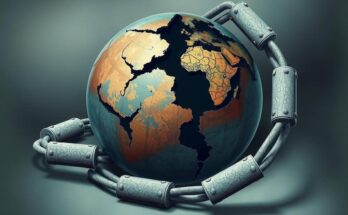Meta’s Controversial Policy Changes
According to human rights experts, recent policy changes by Meta, the parent company of Facebook, could facilitate genocidal violence. Following an announcement by CEO Mark Zuckerberg on January 7, there are concerns these modifications target vulnerable communities by relaxing previously established content moderation rules.
A Shift Towards Anti-Censorship?
Zuckerberg described these shifts as an effort to strengthen free expression, reflecting a compatibility with the policies of the forthcoming Trump administration. As reported by Meta, the changes include replacing professional fact-checkers with community notes and relocating content moderators, a move intended to prioritize what Zuckerberg calls “free speech.”
Experts Raise Alarm
Pat de Brún from Amnesty International and Rohingya activist Maung Sawyeddollah voiced significant alarm about the implications of these policy changes. They argue that such alterations will escalate the risk of inciting violence against already marginalised groups. Sawyeddollah stated that the absence of safeguards might embolden hate speech against targeted communities worldwide.
A History of Recklessness
The history of Facebook’s impact on violence forms a troubling backdrop to these developments. As detailed by experts, the social media platform served as a breeding ground for anti-Rohingya sentiment leading up to the violent atrocities against this community in Myanmar. “Meta’s recklessness has had horrific consequences before,” according to de Brún and Sawyeddollah, who highlight Facebook’s role in the ethnic cleansing of Rohingya Muslims.
Whistleblower Actions
In late January, Sawyeddollah, backed by several human rights organizations, filed a whistleblower complaint with the SEC. This filing argues that Meta was aware of the harmful effects its algorithm generated, particularly in fuelling anti-Rohingya hate speech, and subsequently failed to disclose this information to shareholders.
Urgent Call for Accountability
De Brún and Sawyeddollah stress the importance of accountability, urging both investors and legislators to insist on better governance from Meta to avert a repeat of past errors. They assert that it falls onto shareholders and government bodies to ensure that human rights are protected amidst these significant changes.
Human rights experts warn that Meta’s new policies may ignite genocidal violence against marginalized communities. Recent changes, framed as an anti-censorship move by CEO Mark Zuckerberg, have alarmed activists. Past instances show Facebook’s role in inciting violence, particularly against the Rohingya. A whistleblower complaint has been filed to hold Meta accountable for its algorithm’s destructive impacts.
The shifts in Meta’s policies, driven by a perceived alignment with the incoming administration, raise serious red flags among human rights advocates. As past experiences demonstrate, social media can catalyse violence against vulnerable communities. To prevent history from repeating itself, there is an urgent call for accountability from investors and regulatory bodies alike.
Original Source: www.alternet.org



